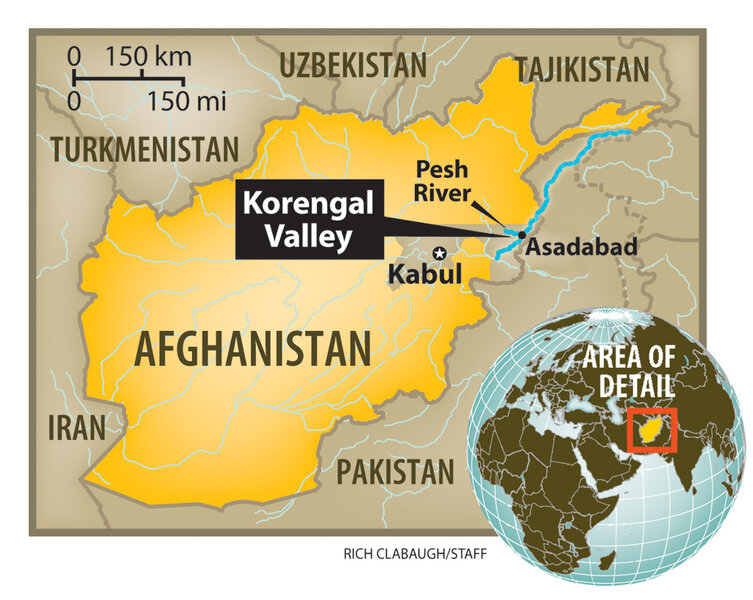Afghanistan war: US leaves remote outpost of Korengal
Loading...
| Kabul, Afghanistan
It became known as “Enemy Central,” a small, isolated slice of eastern Afghanistan synonymous with violence, a dogged adversary and, increasingly, futility. More than 40 US soldiers have died there after being drawn into battles of attrition for questionable return. In the worst such incident, 16 American troops on a special forces mission were killed when their helicopter crashed under enemy fire.
Now the last US troops have pulled out of the Korengal valley on the grounds that they can be better used somewhere else. “This repositioning, in partnership with the Afghan National Security Forces, responds to the requirements of the new population-centric counterinsurgency strategy,” Lt. Gen. David M. Rodriguez, joint commander of international forces in Afghanistan, said in a statement on NATO’s website. “The move does not prevent forces from rapidly responding, as necessary, to crises there in Korengal and in other parts of the region, as well.”
Part of Gen. Stanley McChrystal’s strategy is to pull troops back from remote mountain outposts and concentrate them in the towns and villages where more of the Afghan population lives. By putting the emphasis on protecting civilians instead of killing Taliban fighters, he hopes to drive a wedge between the two, isolating and alienating the insurgents.
The withdrawal in Korengal – a short tributary valley so isolated that its inhabitants speak their own language – has been going on for months. Combat Outpost Vegas, high up in the valley, closed last year. But US military officials have said in the past that the strategy was delayed by a shortage of cargo helicopters, military bureaucracy, and Afghan politics.
And it is not just Korengal that is seeing American forces depart. The US footprint in nearby Nuristan Province – the mountain highlands that were the setting for Rudyard Kipling’s tale of imperial hubris, "The Man Who Would Be King," has all but vanished, too. Two separate attacks in 2008 and 2009 saw a total of 17 US soldiers die when insurgents overran their outposts in remarkably similar circumstances.
The signs in Nuristan, though, are encouraging. Since the US pulled all its troops out of Kamdesh district, the scene of the most recent of these battles, Taliban-linked insurgents have been on the back foot as local communities and elders turn against them.






